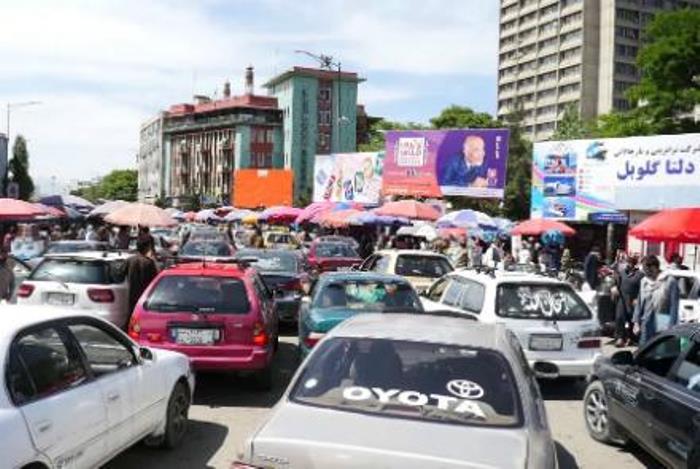The Afghan cabinet approved a plan to gradually ease the Kabul lockdown–allowing businesses to open for certain hours, based on health advice–but Pres. Ghani calls for all to stay in their homes during Eid, says the Presidential Palace.
Despite the limited testing capacity, the Public Health Ministry has reported an average of 500 new confirmed cases each day over the past week. The number of confirmed COVID-19 cases in Afghanistan is nearing 9,000.
The lockdown began in Kabul in March, when the known positive cases in Afghanistan was around 400, but the more movement was restricted, the people mostly dependent on daily wages have been faced with a desperate situation–either go onto the streets and risk COVID-19 and arrest for violating the lockdown, or go hungry and fail to pay rent or cover other expenses.
Health officials continue to warn people against indifference to the lockdown rules, but less and less attention is being paid to health advice, such as to use a mask, gloves and maintain social distancing.
Kabul governor Mohammad Yaqub Haidari said that poverty among families, as well as the arrival of Eid, has caused crowds to increase in the city.
“The situation is not normal. It is an emergency. The virus is spreading. We will ease the lockdown as the situation improves,” the governor said.
“It is not poverty only that pushes people to go out of the house; some are going out to buy dry fruit while they can live without it,” the deputy minister of public health, Wahid Majroh, told a press conference on Thursday.
Kabul residents criticized the government for indifference to their situation and to the lockdown.
“The government is happy to announce 500 or 600 (positive) cases a day because it cannot do more than this (for the people),” said Abdul Wase Ahmadzai, a Kabul resident.
“A large number of people survive on daily wages. The government should make plans to support them,” said Naqibullah, a Kabul resident.
Meanwhile, China provided its fourth aid package to the Afghan government for those who have lost their incomes.
Addressing an event at China’s embassy in Kabul, Chinese ambassador Wang Yu said the Eid is arriving and that his country has provided three other aid packages for needy families.
“Of course, China will strong efforts to support the peace process of Afghanistan,” he added.













